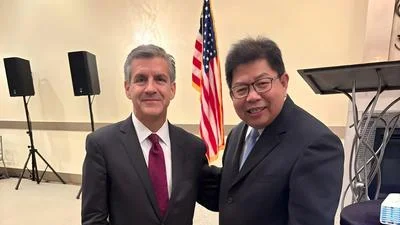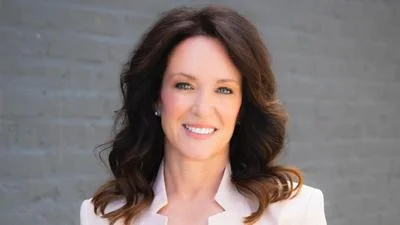Sen. Laura Ellman (D-Naperville) cheered that $42 million in federal funds from Illinois’s American Rescue Plan Act (ARPA) are being used to boost water and sewer assistance across the state. | Photo Courtesy of Laura Ellman website
Sen. Laura Ellman (D-Naperville) cheered that $42 million in federal funds from Illinois’s American Rescue Plan Act (ARPA) are being used to boost water and sewer assistance across the state. | Photo Courtesy of Laura Ellman website
Illinois state Sen. Laura Ellman (D-Naperville) recently announced an assistance opportunity for water and sewer utility bills.
In all, $42 million in federal funds from Illinois’s American Rescue Plan Act (ARPA) has been allocated to boost water and sewer assistance across the state.
“Water and sewer assistance is here! Illinois Department of Commerce & Economic Opportunity has announced the Low-Income Household Water Assistance Program providing $42 million to help people avoid shut offs, assist households that have already had their services shut off or provide assistance to residents unable to pay their water and sewer bills,” Ellman wrote in a Dec. 9 Facebook post.
According to a press release, the program builds on the state’s Low-Income Home Energy Assistance Program (LIHEAP) and the Community Services Block Grant (CSBG) program which helps eligible Illinoisans cover the costs of utility bills, rent, temporary shelter, food and other household necessities, regardless of how they may be affected COVID-19.
Eligible Illinois families may qualify for hundreds of dollars of financial support with applications being reviewed on a first-come, first-served basis and subject to funding availability.
According to WBEZ News, the cost of water in Chicago tripled between 2009 and 2019, partially due to rate increases approved by Chicago’s City Council in 2011 and 2016. As of 2019, residents had not paid more than $210 million in water bills.
In Nov. 2019, Chicago Mayor Lori Lightfoot implemented a policy that included not shutting off a resident’s water supply if they don’t pay utility bills, according to Block Club Chicago.
“Our families deserve to live their lives without the constant financial stress imposed by city government. They need a pathway to compliance to be able to pay their bills,” the mayor said.
Beginning in 2016, the rates that Chicago residents pay for water has increased every year based on inflation.






 Alerts Sign-up
Alerts Sign-up